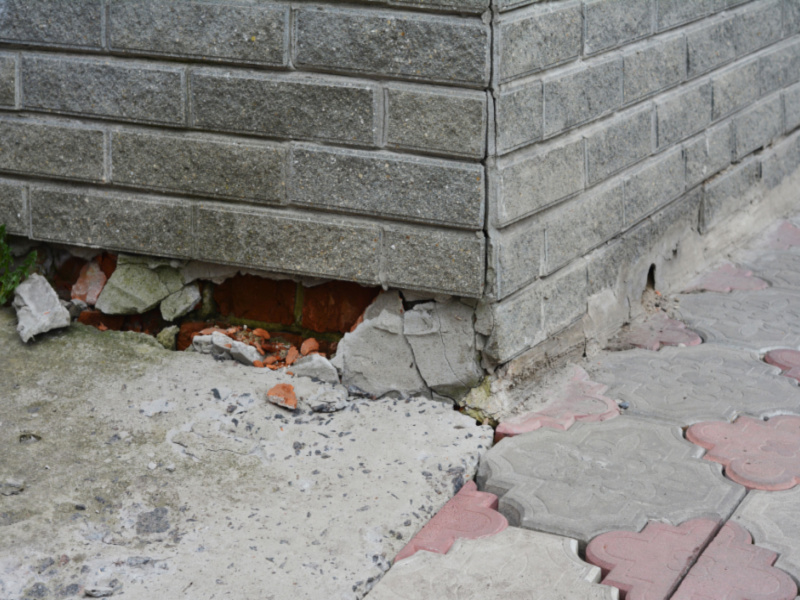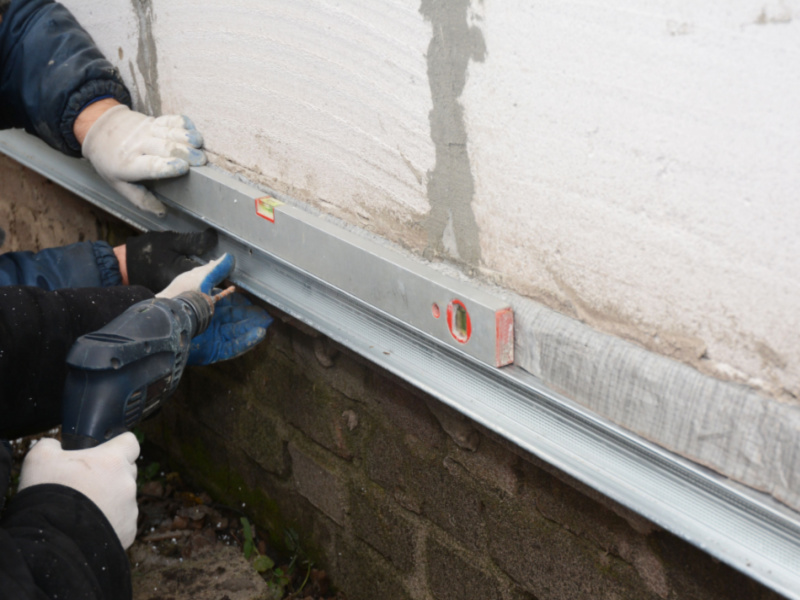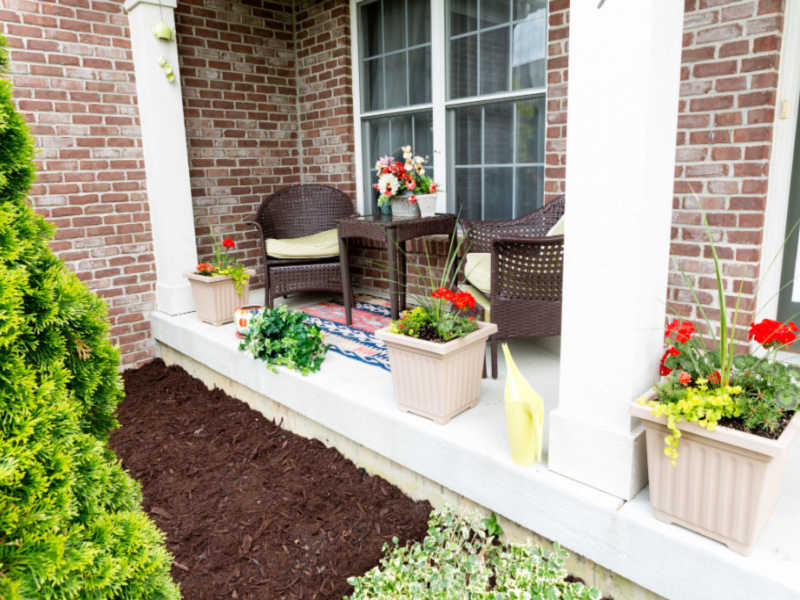Does Homeowners Insurance Cover Foundation Issues?
Here's when your policy kicks in—and when it won't

Here's when your policy kicks in—and when it won't

While homeowners’ insurance is pretty awesome (if we do say so ourselves!) that doesn’t mean that it covers everything that could conceivably go wrong with your home.
Case in point: Repairing damage to your home’s foundation can get pretty costly, but your home insurance policy won’t cover such damage in every scenario. So what’s covered and what isn’t—and how can you prevent foundation problems in the first place?
When it comes to your home’s foundation, the relevant part of your policy is its dwelling coverage, which covers the structure of your home itself. Your insurance company will probably cover foundation repair if:
In general, your home insurance will help you with the cost of foundation repair if it was caused by:

While your homeowners insurance coverage will kick in to help cover some instances of foundation damage, there are cases where your policy won’t cover repairs, even if the damage stems from a natural disaster and you aren’t at fault.
For a start, most policies specifically exclude foundation issues caused by floods or earthquakes, which happen to be some of the biggest culprits behind foundation damage.
If you live in an area which is at high risk of floods and/or earthquakes, like Florida or California, you’ll want to look into purchasing a separate flood insurance and earthquake insurance policy. (For a few extra bucks a month, Lemonade offers earthquake insurance as an add-on for homeowners in California.)
Most insurance coverage doesn’t include foundation problems that are caused by normal wear and tear, like the natural settling of the earth over time. This can be a problem for newly built houses, so you’ll want to verify that your home is built on evenly compacted soil.
Homeowners insurance is a two-way street. In exchange for helping cover the costs of a wide range of bad scenarios, your insurance company expects you to do your part to maintain your home, and that includes its foundation. That’s insurers are unlikely to pay for structural damage that could have been expected and prevented, like:

Foundation repair costs typically range between $2,224 and $8,129 (average $5,172), and can run as low as $500 or as high as $16,000. What it will cost to repair your home’s foundation depends on where you live, the cost of labor in your area, and how complicated the repairs are.
Not surprisingly, the earlier you spot the problem, the less it costs to fix it, so it’s well worth keeping an eye out for early signs of foundation damage. These can include:
While a foundation check will be part of your professional home inspection, you don’t need a foundation specialist to continuously monitor your home’s foundation. Just make your own regular inspections for these warning signs so that you can address any issues before they become much bigger—and costlier to fix.

Some causes of foundation damage are completely outside your control.
Nevertheless, it’s worth taking small measures to keep your home’s foundations healthy and in good shape.
Strong foundations are the key to a healthy home, so do your best to keep yours in good shape.
But let’s be honest, you can’t control everything, so you also want to know that your home insurance policy has your back if it all goes unexpectedly pear-shaped. Why not let Lemonade homeowners insurance be the foundation of your home insurance safety net? Getting a quote is free, easy, and brings you a step closer to protecting your home, foundation and all.
A few quick words, because we <3 our lawyers: This post is general in nature, and any statement in it doesn’t alter the terms, conditions, exclusions, or limitations of the policies issued, which differ according to your state of residence. You’re encouraged to discuss your specific circumstances with your own professional advisors. The purpose of this post is merely to provide you with info and insights you can use to make such discussions more productive! Naturally, all comments by, or references to, third parties represent their own views, and Lemonade assumes no responsibility for them. Coverage may not be available in all states. Please note that statements about coverages, policy management, claims processes, Giveback, and customer support apply to policies underwritten by Lemonade Insurance Company or Metromile Insurance Company, a Lemonade company, sold by Lemonade Insurance Agency, LLC. The statements do not apply to policies underwritten by other carriers.
Please note: Lemonade articles and other editorial content are meant for educational purposes only, and should not be relied upon instead of professional legal, insurance or financial advice. The content of these educational articles does not alter the terms, conditions, exclusions, or limitations of policies issued by Lemonade, which differ according to your state of residence. While we regularly review previously published content to ensure it is accurate and up-to-date, there may be instances in which legal conditions or policy details have changed since publication. Any hypothetical examples used in Lemonade editorial content are purely expositional. Hypothetical examples do not alter or bind Lemonade to any application of your insurance policy to the particular facts and circumstances of any actual claim.